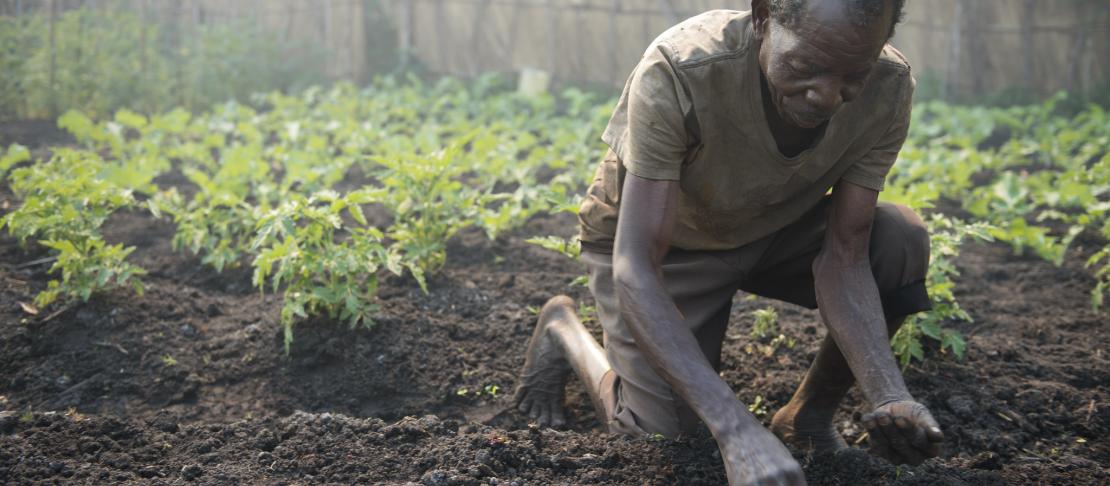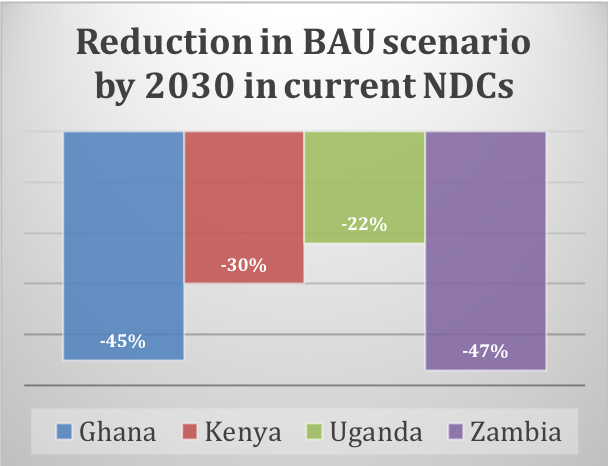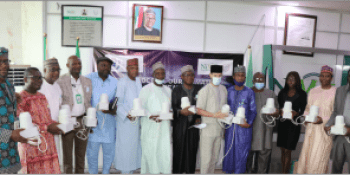Formulating long-term, climate-resilient development strategies for agriculture

Ghana, Kenya, Uganda and Zambia get help to formulate climate-resilient development strategies to inform updating their agricultural Nationally Determined Contributions.
Agriculture is a key sector for most African economies but it is highly sensitive to weather and climate variability. Climate change poses major risks, threatens development and will exacerbate food and nutrition insecurity.
Ghana, Kenya, Uganda and Zambia are among the most vulnerable countries to adverse climate change impacts. This implies a need to shift from business-as-usual (BAU) to low-carbon, climate-resilient development pathways. These will not only address future climate risks, particularly in the agriculture sector, but will also enable countries to prosper under a changing climate while reducing greenhouse gas (GHG) emissions in their pursuit of economic development.
Global commitments
The Paris Agreement requires countries to communicate to the United Nations Framework Convention on Climate Change (UNFCCC) Secretariat, by 2020, their respective “mid-century long-term low emissions, climate resilient development strategies”. These long-term strategies should establish a visionary agenda for bold, concrete actions that will inform near- and long-term investments for enhanced low emissions and climate-resilient development while helping to limit global warming. Additionally, these strategies will provide key guidance and pathways for countries in updating their Nationally Determined Contributions (NDCs). These pathways should include long-term development planning in the context of climate risks and uncertainties. Furthermore, they should foster coherence and coordination across the entire economy, and define choices and trade-offs necessary for achieving the country’s low carbon, climate-resilient development pathway.
Countries have an opportunity to develop a farsighted approach to development and climate–one that builds medium and long-term development plans and will help bring about transformation in line with the Sustainable Development Goals and the Sendai Framework on Disaster Risk Reduction.
Long-term strategy formulation
In 2015, Ghana, Kenya, Uganda and Zambia submitted ambitious NDC targets for emissions reduction from a business-as-usual (BAU) scenario by 2030: 45%, 30%, 22% and 47% for Ghana, Kenya, Uganda and Zambia, respectively.

Emissions reduction in business-as-usual scenario by 2030 in the current NDCs in Ghana, Kenya, Uganda and Zambia
These countries are updating their NDCs for submission to the UNFCCC before the end of 2020. However, a long-term approach is necessary to define the development aspirations in a changing climate. Thus, it is imperative to develop long-term, low-carbon, climate-resilient development strategies into which the NDCs and other short-term development goals will feed.
The Africa Group of Negotiators Experts Support (AGNES) has partnered with several organizations*, including the CGIAR Research Program on Climate Change, Agriculture and Food Security (CCAFS), to support the formulation of such long-term strategies and to update the agriculture component of the NDCs for the four countries. In addition, the partners will work to build national capacity to support the continued transformation to green growth pathways.
A six-step road map for engagement
In collaboration with each country’s agriculture ministry, a situation analysis (step 1) of relevant policy frameworks and development plans is underway to establish the status of the agriculture sector (baseline). This will identify needed actions for these countries to shift from the BAU scenario and create agricultural transformation. Next, a national multi-stakeholder consultation (step 2) will bring together key stakeholders who will interrogate and validate the situation analysis and help define the scope of the long-term strategies.
The team consisting of partner organizations will then create future climate scenarios/pathways (step 3) by downscaling climate projections and presenting plausible scenarios to inform the choices of the most appropriate options to be pursued. A national expert working session (step 4) will then be held to co-design pathways. This will bring together technical experts from ministries of agriculture, planning, environment, meteorological services and others to develop long-term scenarios and agree on priority mitigation and adaptation actions.
A national stakeholder validation workshop (step 5) will then allow stakeholders to consider the draft agriculture long-term strategies/NDCs for final inputs. Finally, the revised agriculture strategies and updated NDCs (step 6) will be finalized with the technical expert teams to incorporate the comments from the national stakeholder validation meeting.
Lesson sharing and replicability
This approach to using a long-term, low emission strategy and pathway to guide the setting of shorter-term targets is not limited to the agricultural sector or to these four pioneering countries. Lessons learned from the processes in Ghana, Kenya, Uganda and Zambia will be documented as a guideline to be shared with other countries and sectors interested in adopting a similar process.
Read more
* Additional partners: Food and Agriculture Organization of the United Nations (FAO); African Centre for Technology Studies (ACTS); Alliance of Bioversity International – CIAT; International Livestock Research Institute (ILRI); East African Institute of the Aga Khan University (EAI-AKU); and World Wide Fund for Nature Kenya (WWF-Kenya)
Erick Omollo is a Research Associate at AGNES. Ciniro Costa Junior is a Science Officer at the CCAFS Low Emissions Development Flagship. Laura Cramer is a Science Officer at the CCAFS Priorities and Policies for CSA Flagship. Lilian Kwamboka is a Research Associate at AGNES.


